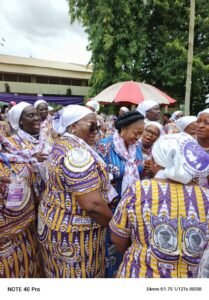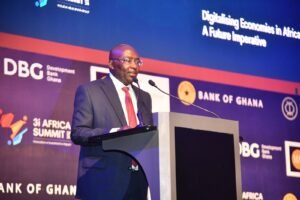
Some of the participants listening to President Akufo-Addo
President Nana Addo Dankwa Akufo-Addo has stated that democracy has been beneficial for Ghana and the African continent as a whole.
According to the President, data and history have proven, beyond all reasonable doubt, that all aspects of national life have witnessed significant improvements under democratic dispensations, in comparison to periods of military rule.
“The 1970s and 1980s, the periods of unbridled authoritarian rule on the continent, were the eras of economic decline, worsening poverty, collapsing infrastructure and insecurity on our continent. GDP per capita in 1970, for example, according to the World Bank, stood at $220,” he stated yesterday at the 2021 Ghana Bar Conference in Bolgatanga.
He added that the “third wave of democratization” in Africa, beginning in the 1990s, saw GDP per capita rise, substantially, to $605 in 1995, declined marginally to $547 in the year 2000, and, in 2017, increased to $1,550.
“We know, however, that the price of freedom is eternal vigilance, and vigilant we shall be here in Ghana. We shall not let our guard down, and allow the clammy embrace of the people by anti-democrats, who are disdainful and incapable of effective popular mobilisation through accepted channels, but who want shortcuts to power without the express support of the people,” he said.
Indexes
In Ghana, President Akufo-Addo stated that GDP per capita was $398 in 1990, declined to $258 in 2000, and is now $2,223.
Another key index of human development, life expectancy at birth, he said, was estimated by the World Bank at 45 years in 1970 in sub-Saharan Africa.
“By 1990, this had increased to fifty (50) years, and, in 2019, life expectancy at birth on the continent was sixty-one (61) years. In Ghana, it was forty-nine (49) years in 1970, and sixty-four (64) years in 2019. According to data from the World Bank, primary school enrolment in sub-Saharan Africa in 1970 stood at 54%, and had increased to 98.9% in 2019. It was 64% for us in Ghana in 1970, and by 2019, stood at 105% in 2019,” he said.
According to the President, the implementation of the Free Senior High School policy has brought 1.2 million Ghanaian children into the education ecosystem, the highest number of students in secondary school in Ghana’s history, 400,000 of whom would otherwise have been excluded.
Additionally, he indicated that the National Health Insurance Scheme is operating more adequately, and is enjoying the confidence of the increasing numbers of its users, with the number of active members up from 10.6 million in 2016 to 12.3 million at the end of 2019, stressing “the goal in sight is to attain Universal Health Coverage for all”.
With next year marking the 30th anniversary of the 1992 Referendum, President Akufo-Addo noted that the Ghanaian people showed through that process their commitment to democratic governance under a constitution that guarantees the full enjoyment of fundamental human rights and civic liberties.
“The decision has ushered our nation into the longest, uninterrupted period of stable, constitutional democratic governance in her history, which has experienced, under the 4th Republic, three peaceful transfers of power through the ballot box on three separate occasions. The anti-democrats, who are always looking for occasions to sneer at democratic governance, should also bear the following data in mind,” he said.


